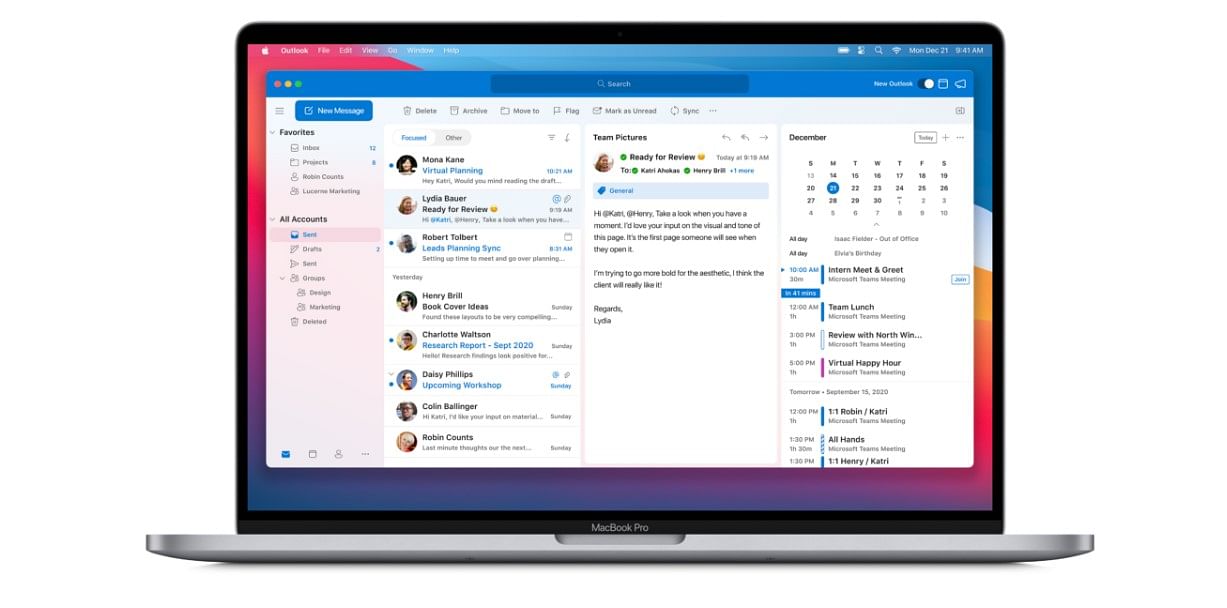
Last month, Apple unveiled the much anticipated new MacBook Air, Pro, and Mac mini, which are powered by the proprietary M1 silicon processor.
There was apprehension among consumers and tech critics about the early compatibility of Microsoft Office and other popular application software with the new Apple M1-based laptops.
Now, American technology major Microsoft has announced that five of its Office applications now support the new Apple Mac PCs.
"We are excited to announce that starting today we are releasing new versions of many of our Microsoft 365 for Mac apps that run natively on Macs with M1. This means that now our core flagship Office apps—Outlook, Word, Excel, PowerPoint, and OneNote—will run faster and take full advantage of the performance improvements on new Macs, making you even more productive on the latest MacBook Air, 13-inch MacBook Pro, and Mac mini. The new Office apps are Universal, so they will continue to run great on Macs with Intel processors. The apps are not only speedy, but they also look fantastic as they have been redesigned to match the new look of macOS Big Sur," Microsoft said.
If the consumers have turned on the automatic updates turned on, users will start to receive these updates (December 16 onwards). Or else, users can head to the Mac App Store and click the Updates tab, or with Microsoft AutoUpdate, users can go to the Office app’s Help menu and choose to Check for Updates.
All five apps are said to be optimised to work faster on Apple Macs with M1 and they are redesigned to match the new look of macOS Big Sur. Microsoft also announced support for iCloud accounts in the new Outlook for Mac.
And, Microsoft revealed that it working to bring the Teams video conference app support for the new Apple PCs with M1 chipset at the earliest.
As of now, Microsoft Teams currently available in Rosetta emulation mode on Macs with M1 and the browser.
For the uninitiated, Rosetta is a dynamic binary translator developed by Apple exclusively for macOS. This allows developers to run apps that contain x86 instructions on Apple silicon. In layman's terms, Rosetta is meant to ease the transition to Apple silicon, giving developers time to create a universal binary for their app. Once the testing is done and all bugs weeded out, developers can release them to the public, just like Microsoft did, as mentioned above.
Get the latest news on new launches, gadget reviews, apps, cybersecurity, and more on personal technology only on DH Tech.
